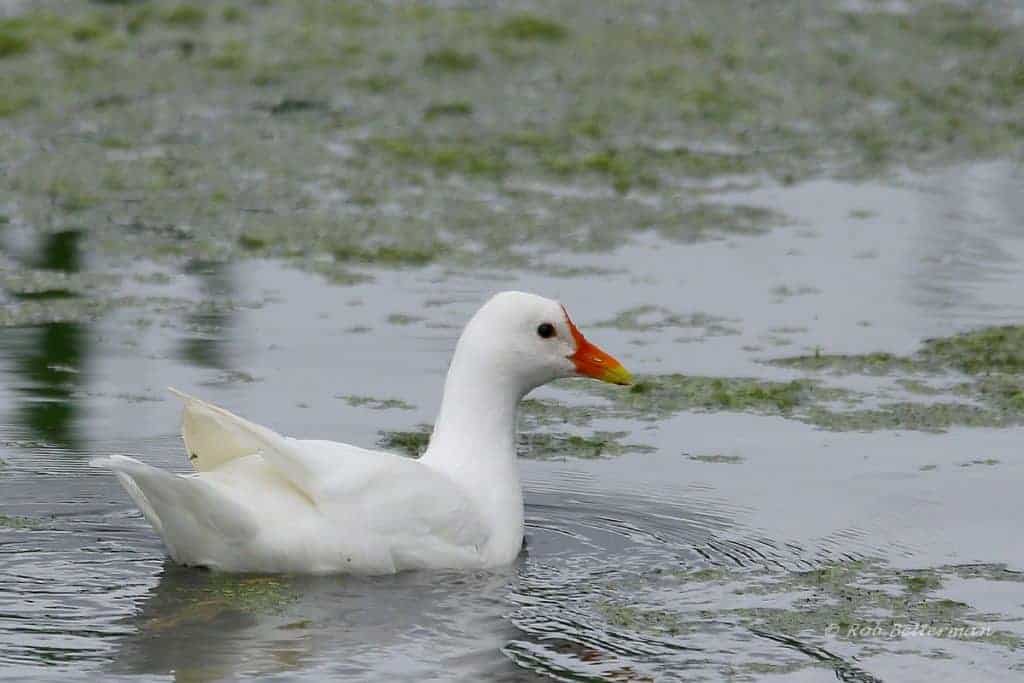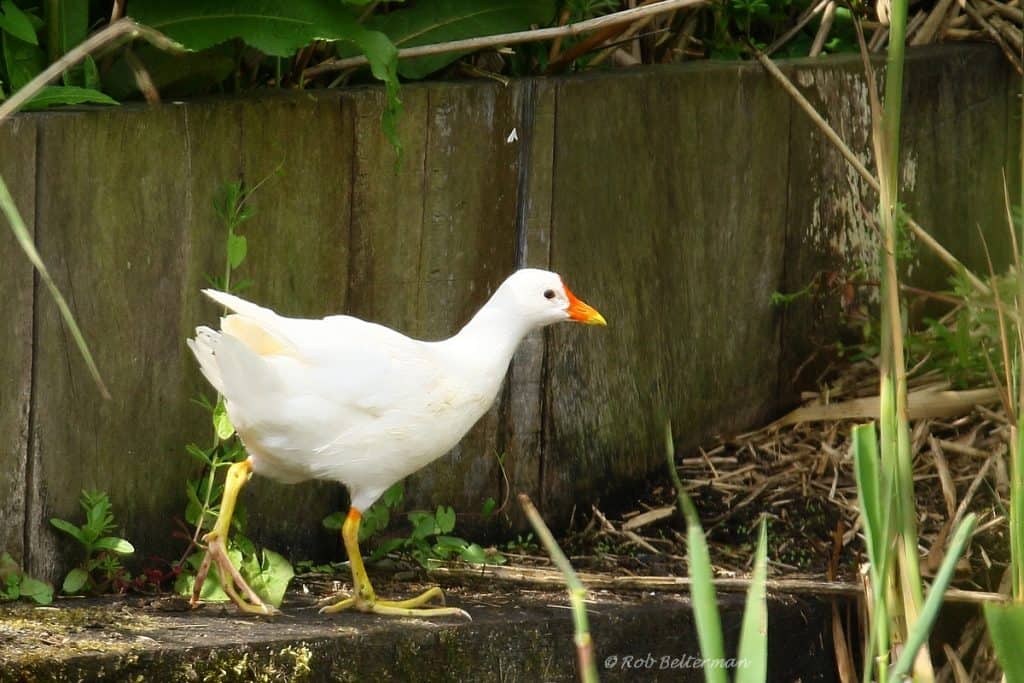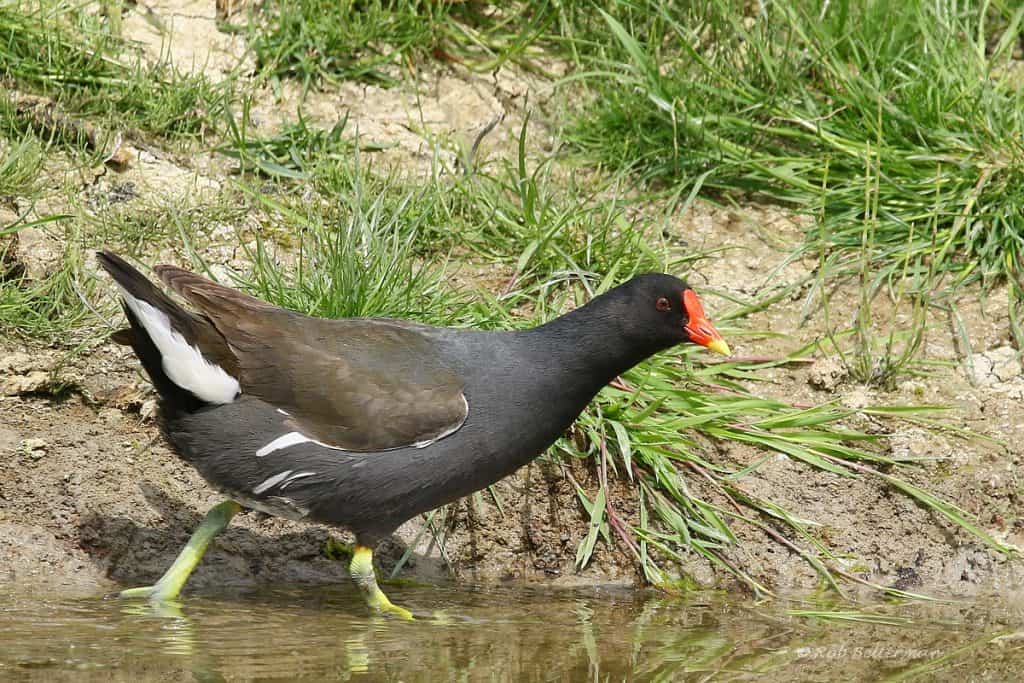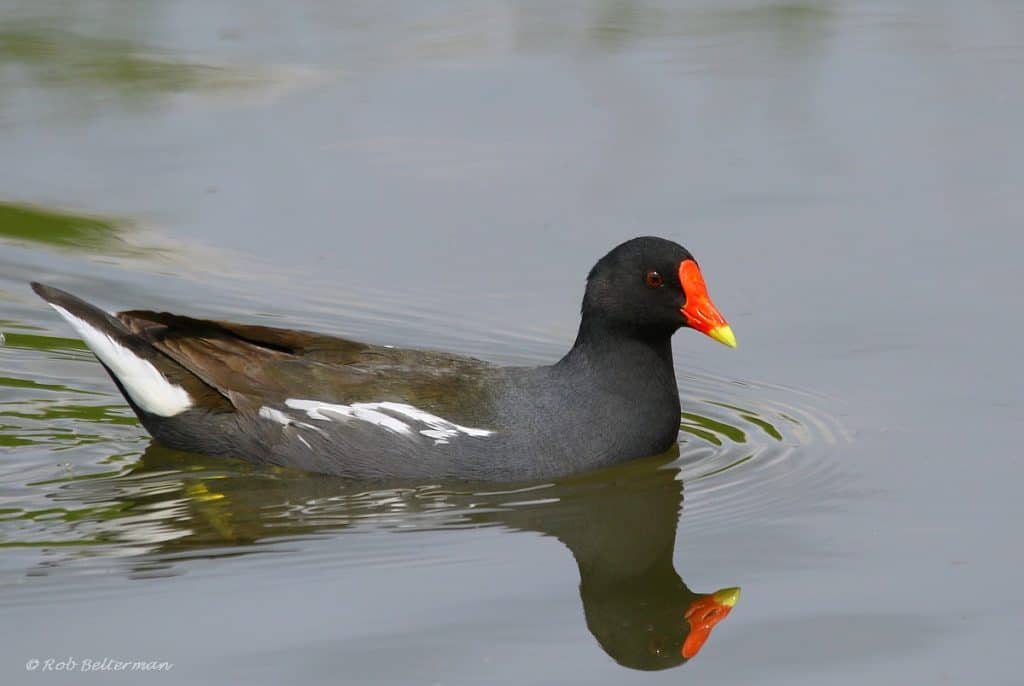This week I received a question from one of my Facebook friends. He spotted a strange white bird and asked me what it could be. I promised him to have a look and the next morning I went to the location to see if I could find the bird. As soon as I arrived at the location I saw a very shy white bird and could identify it as a Common Moorhen (Gallinula chloropus) and could make some pictures just before it disappeared in to the reed.
As the complete white Moorhen had no red eyes and had a colored bill and legs, my conclusion was that it could not be albinism but leucism. Leucism is an abnormal plumage condition. It’s caused by a genetic mutation. This mutation prevents the development of particularly melanin pigment.
The birds do not have the normal plumage colors, but the plumage have several color changes, including white patches, a paler plumage, or an overall white plumage.
Birds that show only white patches or sections of leucistic feathers are called pied or piebald. Birds with fully white plumage are called leucistic birds.




Rob Belterman
Rob Belterman has been working in Rotterdam Zoo since 1978, and is based in the Netherlands. Retired since 2014. His project activity encompasses the genetics (chromosomes) of birds and mammals, sexing European White Storks for re-introduction in the Netherlands, Bearded Vultures in Austria, and Cinereous Vultures in Mallorca. He coordinates two European Endangered Species Programmes for Red-crowned Cranes and Siberian Cranes. Rob is an enthousiastic bird photographer and always takes his camera with him when travelling.
- Web |
- More Posts(11)
Leave a Reply